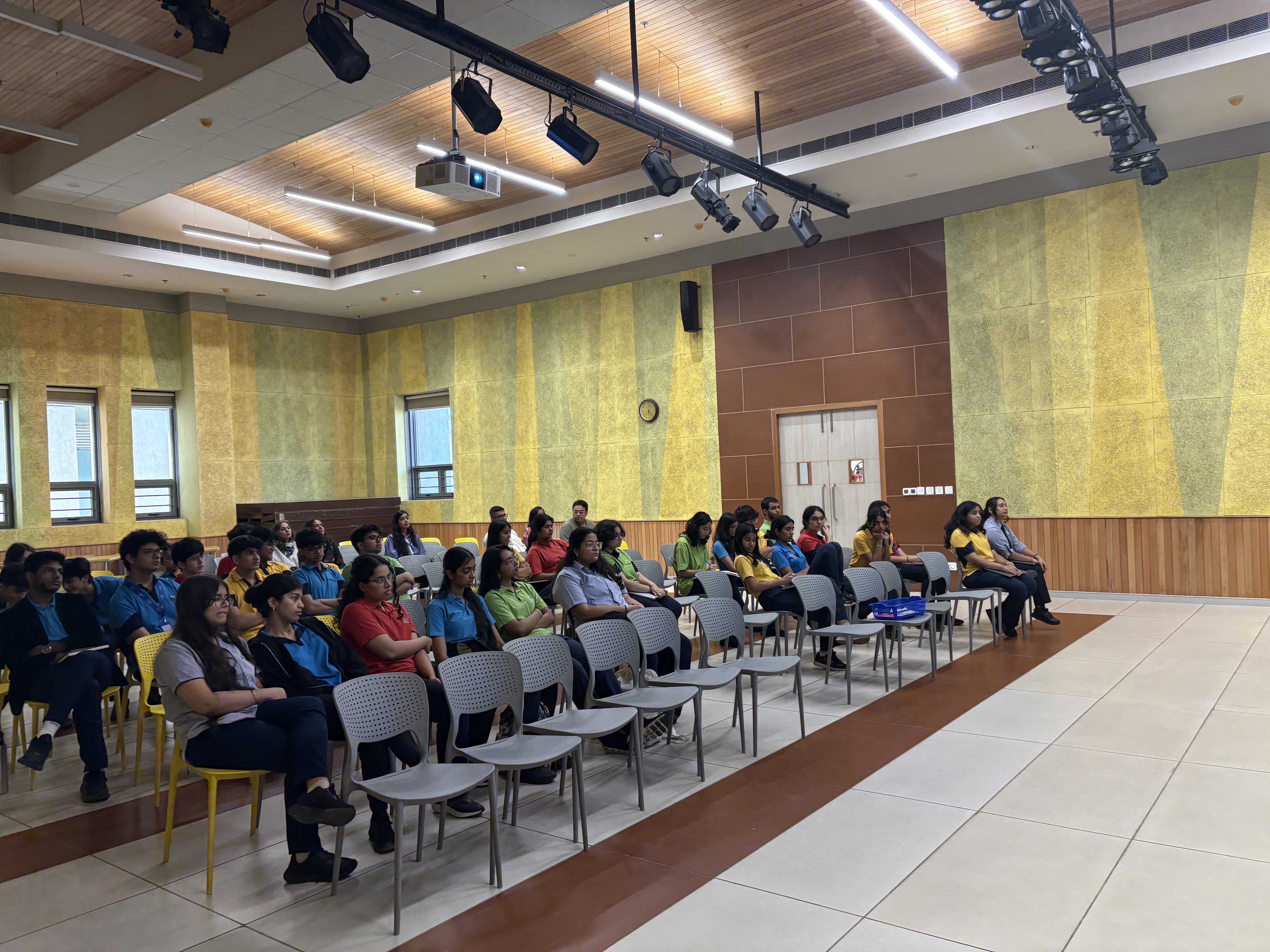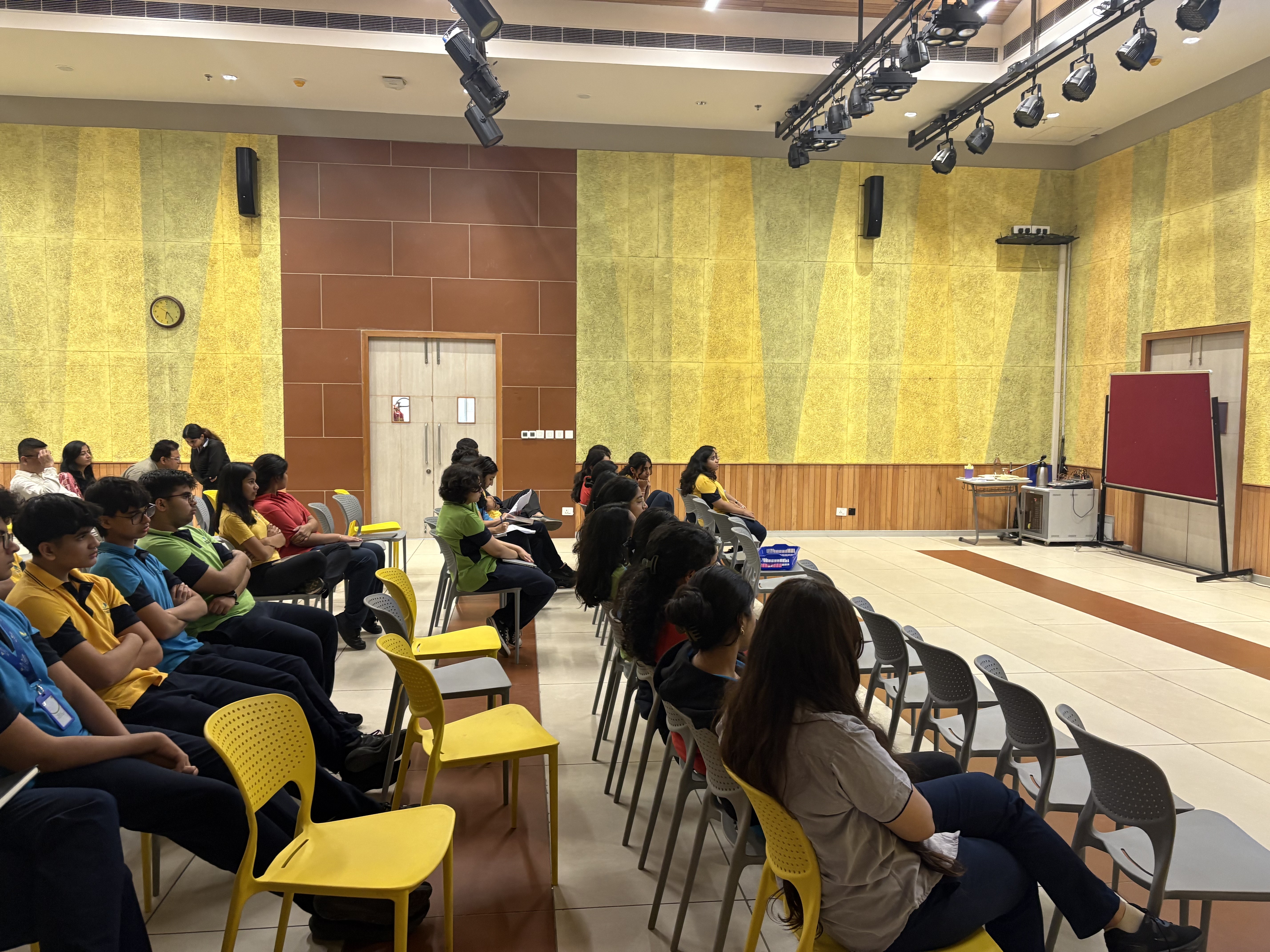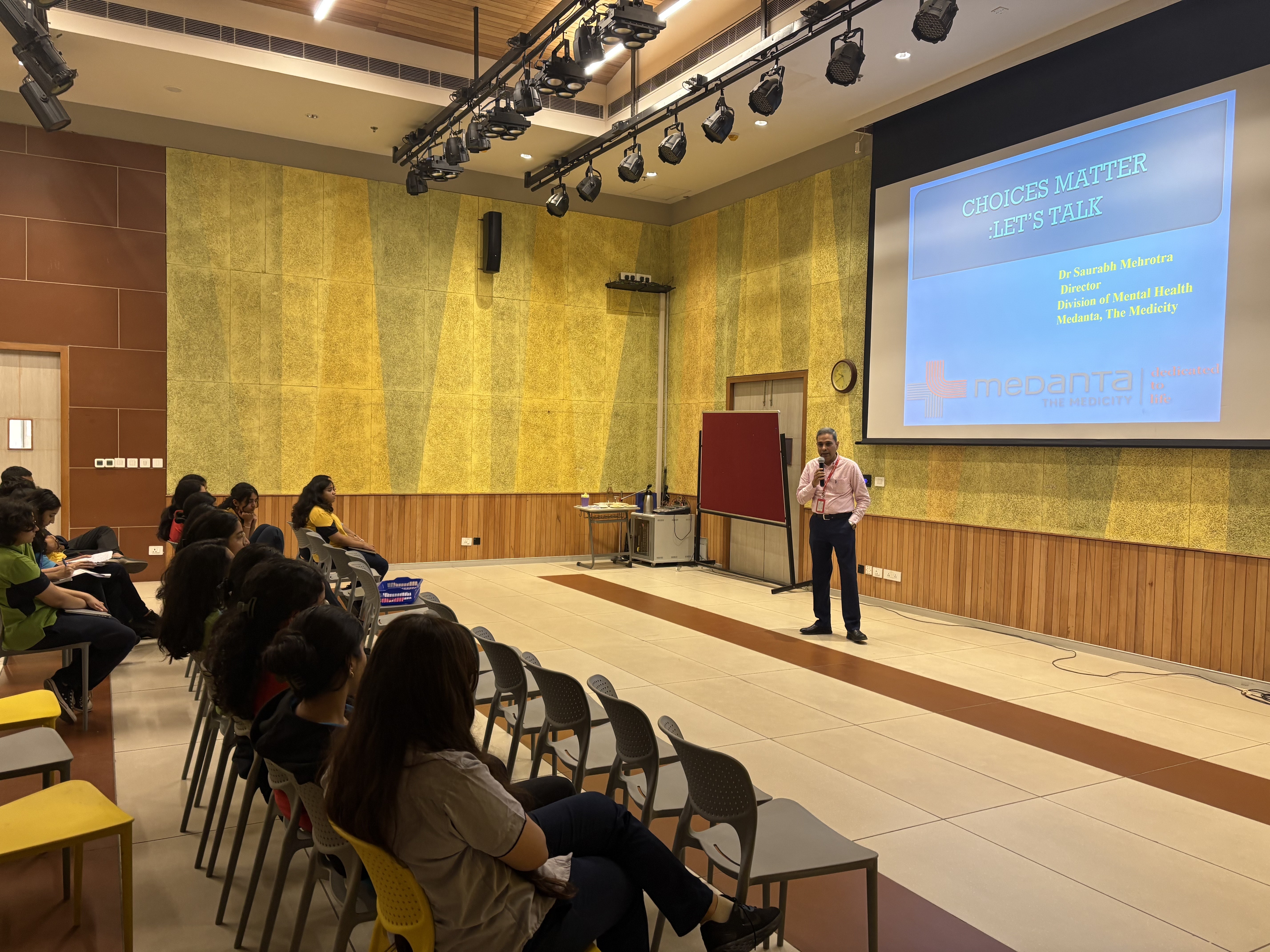Promoting Well-being: Understanding the Adolescent Brain and Addiction
The session commenced with a comprehensive introduction to the physiology of the brain, emphasising the crucial period of adolescence for establishing healthy neuronal connections. Dr. Mehrotra elucidated how the use of substances during this vital developmental stage can detrimentally reinforce brain circuits associated with addiction, making it significantly more challenging to overcome later in life.
He engaged students in a candid discussion about commonly encountered substances, including vapes, alcohol, and cannabis, highlighting their specific detrimental effects on the growing body. This segment underscored the direct correlation between external lifestyle choices and internal physiological well-being, prompting students to critically evaluate their decisions.
The dialogue further extended to the pervasive influence of peer pressure, stressing the importance of developing assertiveness and resilience when navigating situations involving substance use. Dr. Mehrotra advocated for healthier alternative lifestyle choices, such as pursuing engaging hobbies, participating in sports, and embracing activities that naturally foster a sense of accomplishment and well-being.
The session was highly interactive, characterized by enthusiastic student participation, leading to a dynamic exchange of questions and clarifications. Ultimately, this served as an invaluable and eye-opening discussion, empowering our students with essential knowledge and fostering the confidence required to make informed and responsible choices for their health and future.




